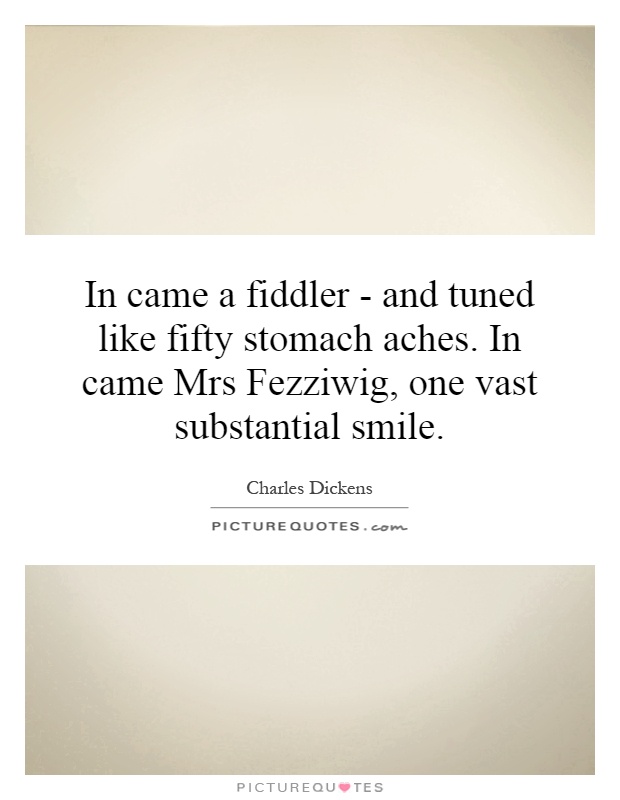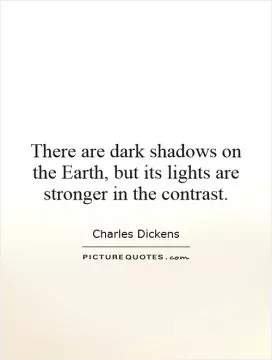In came a fiddler - and tuned like fifty stomach aches. In came Mrs Fezziwig, one vast substantial smile

In came a fiddler - and tuned like fifty stomach aches. In came Mrs Fezziwig, one vast substantial smile
The quote "In came a fiddler - and tuned like fifty stomach aches. In came Mrs Fezziwig, one vast substantial smile" is from Charles Dickens' classic novel, "A Christmas Carol". This particular passage is from the scene where Ebenezer Scrooge is taken back in time by the Ghost of Christmas Past to revisit a Christmas party hosted by Mr. and Mrs. Fezziwig, Scrooge's former employer.The fiddler mentioned in the quote is a lively and energetic musician who brings joy and merriment to the party with his music. The comparison to fifty stomach aches suggests that the fiddler's playing is so lively and spirited that it causes a physical reaction in those listening, making their stomachs churn with excitement and happiness. This imagery highlights the infectious nature of the fiddler's music and sets the tone for a festive and joyous occasion.
On the other hand, Mrs. Fezziwig is described as having "one vast substantial smile", which conveys her warmth, generosity, and welcoming nature. Her smile is described as "substantial", suggesting that it is not just a fleeting expression but a deep and genuine reflection of her character. Mrs. Fezziwig's presence at the party adds to the atmosphere of warmth and hospitality, making everyone feel welcome and valued.
Through the characters of the fiddler and Mrs. Fezziwig, Dickens creates a vivid and engaging picture of a joyful and festive gathering. The contrast between the lively music of the fiddler and the warm smile of Mrs. Fezziwig captures the spirit of Christmas and the importance of community, generosity, and kindness. These characters serve as a reminder to Scrooge of the joy and happiness that can be found in simple pleasures and human connections, ultimately leading him to rediscover the true meaning of Christmas and the importance of compassion and goodwill towards others.
Overall, this quote from "A Christmas Carol" showcases Dickens' skill in creating memorable characters and evocative scenes that resonate with readers and convey timeless messages of love, redemption, and the power of human connection.












 Friendship Quotes
Friendship Quotes Love Quotes
Love Quotes Life Quotes
Life Quotes Funny Quotes
Funny Quotes Motivational Quotes
Motivational Quotes Inspirational Quotes
Inspirational Quotes